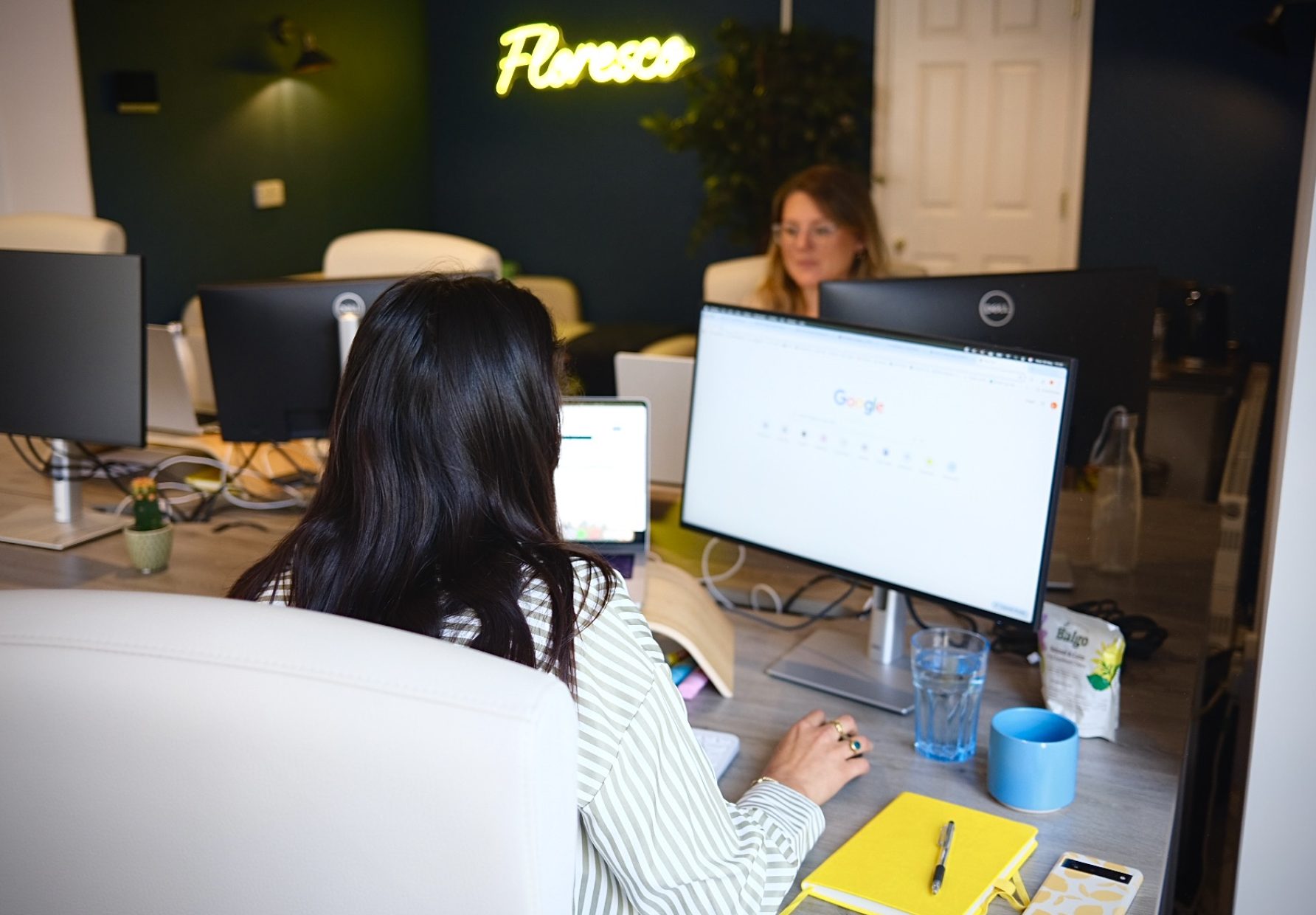
EAST Framework: How Behavioural Science Can Transform Marketing
November 13, 2025
5 Min Read
Behavioural science has a lot to teach us about why people buy. The EAST Framework offers a practical lens for…
Read ArticleJune 16, 2025
6 Min Read
Paid Search


Account Manager
Sign up to stay in touch and be the first to hear about our latest business, market and event updates.
Floresco Account Manager Lisa takes a look at both leading and emerging advertising channels and offers guidance on how to choose the right media mix for your business goals.
In the current age of endless digital noise, the question isn’t if your brand should be advertising, it’s where. With more platforms available than ever before, knowing which channels deserve your budget is critical to brand growth.
Choosing the right paid media platform is about understanding your audience, what makes them tick and knowing what each platform is uniquely designed to deliver.
Here we’ll take a closer look at some leading and emerging advertising channels and offer a strategic lens through which to choose the right mix for your business goals.
Google remains non-negotiable for most performance-driven advertisers. When someone actively searches for a product or service, appearing at the top of that results page is a direct invitation to convert.
In the UK mobile search dominates and visibility on Google can drive measurable gains across sectors, from trades and legal services to e-commerce and healthcare. It’s not just about being seen it’s about being seen when it matters most.
Social media advertising has evolved far beyond likes and comments. Today, Facebook and Instagram serve as powerful commercial engines, particularly when campaigns are tailored to audiences, behaviours and interests.
When used correctly, these platforms can tell a brand story with stunning visuals and precise delivery. Whether you’re re-engaging previous visitors or introducing your brand to a new market, the power lies in personalisation and Meta’s platforms are built for it.
Often overshadowed by Google, Microsoft Ads (formerly Bing Ads) holds surprising impact with the ability to reach users across Bing, Yahoo and AOL networks. The platform often attracts an older, more affluent demographic, particularly in sectors like finance, professional services and B2B.
CPCs are generally lower than on Google, thanks to reduced competition, but intent remains higher. Integration with LinkedIn targeting also unlocks niche B2B opportunities that no other search platform currently offers.
For B2B marketers LinkedIn offers a way to tap into a true decision-making ecosystem. With over 35 million UK users and rich segmentation tools, LinkedIn allows brands to speak directly to the usually inaccessible C-suite, industry professionals and niche audiences.
LinkedIn is great for campaigns with longer consideration cycles, such as software solutions, consultancy services or corporate training. If your value lies in insight, expertise or transformation, this is where your marketing should lie.
Thought leadership campaigns (blogs, whitepapers, webinars, insights) tend to perform best on LinkedIn, especially when supported by strong creative and well-optimised lead gen forms.
Reddit remains one of the internet’s most engaged platforms with deep, interest-based communities (subreddits) across every imaginable topic. While not traditionally seen as an ad-first channel, Reddit has quietly grown into a viable option for brands who value authenticity, feedback and community-driven influence.
Campaigns that respect the culture of each subreddit tend to perform best so ensure you stay relevant and avoid generic messaging. It’s an ideal platform for research-heavy buyers and tech audiences.
Pinterest is less social network and more visual search engine that’s especially effective for verticals like interiors, fashion, food, weddings and DIY. Users come to plan, dream and shop, often with high intent but without a specific brand in mind. That makes it the ultimate space for brand discovery and inspiration.
With robust shopping features, keyword targeting and trend forecasting tools, Pinterest Ads lets brands show up early in the decision-making journey, getting you in front of potential customers before your competitors.
Consider Pinterest almost as visual SEO instead of social media – keywords and content are everything.
YouTube bridges brand awareness with performance. Google regularly informs us that it’s not just a video platform, but is instead the world’s second-largest search engine where users turn for reviews, demos and tutorials.
The power of video to explain, inspire and influence cannot be overstated. YouTube offers ad formats across the full purchasing journey – with skippable TrueView ads for reach, bumper ads for brand recall and action-driven formats for direct conversion. When paired with Google Ads, you have access to measurement within Google’s walled garden and integrated search and video strategies.
TikTok is no longer just for Gen Z. Across the UK, we’re seeing growth across demographics with a strong presence among 25-44 year olds and rising B2B interest.
TikTok has the shown it has the ability to humanise and bring brands to life through short-form storytelling and trend participation. The platform is all about showing up authentically with imperfect UGC (user-generated content) often outperforming professionally produced videos.
WeAre8 offers a radically different approach to digital advertising. Built on ethical principles the platform pays users to watch ads and donates a portion to charities. For brands with strong ESG credentials, this platform can reinforce values and reach.
Though newer to the scene and not yet a mass-reach solution, it’s gaining traction in the UK, particularly among socially conscious Gen Z and millennial audiences.
If you’re looking further afield, you’ll need to tailor your media platforms to the country and audience you’re targeting. Many of these solutions will require localisation, compliance and cultural nuance. That being said, for many brands, these platforms will unlock entire market segments that more traditional platforms can’t reach.
In Japan, Yahoo! Japan is one of the top search and content platforms, used by millions of users daily for news, shopping and browsing. Offering both search and display ad formats, it’s a strong choice for brands trying to enter and build trust in the Japanese market.
If you’re entering the Chinese market or even targeting Chinese-speaking audiences in the UK, Baidu (China’s primary search engine) and platforms like WeChat Ads or Douyin (think Chinese TikTok) will become essential.
We know the number of ad platforms out there, and the pace at which they move can be overwhelming. At Floresco, across all our services we’re focused on designing the right strategy for your brand at each moment. The platforms we’ve explored in this blog all offer something unique and we can help you identify which is right for your brand, audience and goals, to help drive sustainable growth for your business.
If you want to find a paid media agency to help you advertise across these platforms and drive business growth, we’d love to talk.